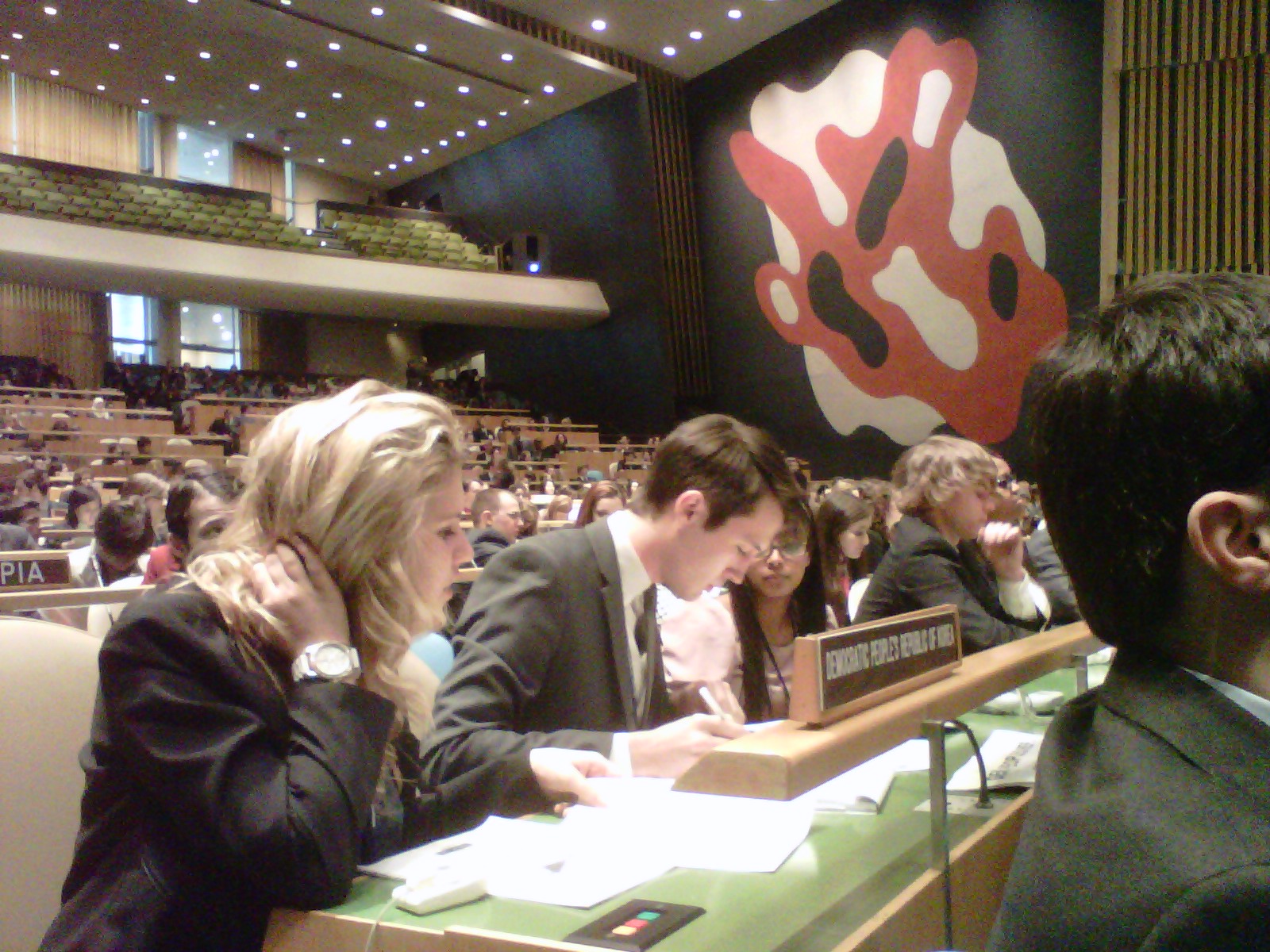
Head delegate Katie James '14 (foreground) working with other head delegates and in the UN General Assembly room (left to right: Michael Zona and Krupa Patel) at the 2012 National Model UN conference in New York City.
Last week, nine out of the thirty students from Pace University New York City who participated at the National Model United Nations (NMUN) conference in here New York represented the delegation from the Democratic People’s Republic of Korea (DPRK), otherwise known as North Korea. Initially, the delegates were interested in representing a regime that many knew fairly little about, a regime that to many of us was illustrated on late night cartoons shows and Internet blogs as something humorous. Since January 2012, the students studied the government, history, people and the society of North Korea, through watching several intense documentaries and reading books such as The Cleanest Race by B.M. Meyers and the graphic novel, Pyongyang by Guy Delisle. After learning about the nation from a source that wasn’t Comedy Central, it was not so funny anymore.
As representing the DPRK, there were many facets to the strategic approach. How will others take us seriously? How will we be able to fully represent a regime, without being disrespectful to others? These were the questions that floated through many delegates’ minds, including my own. As a delegate who has represented nations such as Brazil and Malaysia, being the DPRK posed a great challenge for me. The usual consensus mindset was no longer relevant, this time it was all about being a strong, powerful regime that ran solely because of the work of the Great Leaders. It was about acknowledging the fact that most nations will not agree with your position. It was about giving a speech that most likely calls for an angry reply from the United States or any other Western power. It was about playing a role that at times became uncomfortable.
However, the experience of being the DPRK provided an immense amount of perspective on power relationships, the role of history in diplomatic relations and the immense differentiations in society. The role of the DPRK in the United Nations has given me a deep respect for the institution, which is able to collaborate and coordinate with nations that who are extremely politically, economically and socially diverse. It’s also never a bad thing to step out of your comfort zone every once in a while.
-By Katie James ’14, Pace University New York City Model United Nations Head Delegate
Editor’s Note: Katie and the Pace University delegation representing North Korea were recognized with a “Distinguished Delegation” award from NMUN for the mature manner in which they handled this difficult and morally complex role.

My delegation at the MUN is North Korea too, I’ve been searching and it seems that this is a hard country. Luckily, i’m not the only one who have had issues in researching about North Korea. Can I please receive some advice from you? I’m desesperately looking for help, please.
Hello! I’m running a Model UN blog. http://www.munwithvince.wordpress.com
I would really love to do an online interview with Model UN practitioners.
🙂